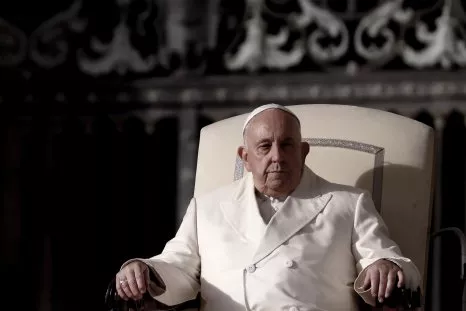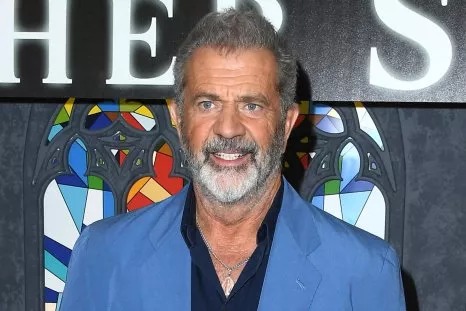Iraq Warns US Is Trying to Destabilize Country With Attacks on Militias
Iraq, considered by the United States to be a regional security partner, has strongly condemned President Joe Biden's decision to conduct airstrikes against militias accused of attacking U.S. forces in the country, warning that a cycle of unrest threatens to destabilize the nation.
"The Iraqi government asserts that the recent escalation in the Iraqi arena over the past two days is a dangerous development involving an unacceptable violation of Iraqi sovereignty," Iraqi government spokesperson Bassam al-Awadi said in a statement shared with Newsweek.
"The government is steadfastly committed, under all circumstances, to preserving, safeguarding, and defending Iraqi sovereignty in accordance with its constitutional and legal duties."
"We vehemently condemn the attack on [the town of] Jurf al-Nasr, executed without the knowledge of Iraqi government agencies," Awadi added. "This action is a blatant violation of sovereignty and an attempt to destabilize the security situation."
At the same time, the Iraqi government also issued a warning to militias operating independently from the military.
"Any armed action or activity outside the military institution is deemed condemnable and an unlawful endeavor that jeopardizes the national interest," Awadi said.
"Also any armed elements or entity failing to adhere to this principle are acting against the national interest, and the government will take necessary measures to safeguard Iraq's national interests."
U.S. Central Command (CENTCOM) announced two rounds of attacks conducted Tuesday and Wednesday against groups said to be responsible for an ongoing campaign of rocket and drone attacks against U.S. troops in Iraq and neighboring Syria.
The first strike was said to have been conducted using AC-130 gunships against "individuals responsible for launching a missile attack on U.S. and Coalition personnel at Al Assad Airbase, Iraq," resulting in "several enemy casualties."
The second involved "discrete, precision strikes against two facilities in Iraq" in "response to the attacks against U.S. and Coalition forces by Iran and Iran-backed groups."
Following the first strike, the group calling itself the Islamic Resistance in Iraq announced the death of one of its members, Fadil al-Maksusi, "who rose as a martyr in the battle of truth against falsehood embodied by the American occupation forces in Iraq."
The Islamic Resistance in Iraq, which CENTCOM told Newsweek earlier this week was believed to be "a broader term used to describe the operations of all Iran-backed militias in Iraq," has claimed regular attacks on U.S. troops in Iraq and Syria, since October 17, the same day that Israel and Palestinian factions led by Hamas blamed one another for a deadly attack on the Al-Ahli Arab Baptist Hospital in Gaza amid an ongoing war there.
After announcing the death of Maksusi, the Islamic Resistance of Iraq claimed new attacks Tuesday against the "American occupation" at a base near Al-Shaddadi in Syria's northeastern Al-Hasakah province and Ain Al Asad Air Base in western Iraq, both "in response to the crimes committed by the enemy against our people in Gaza."
On Wednesday, following news of the second U.S. strike, the group claimed two more attacks on U.S. forces at Al-Harir Air Base in northern Iraq.
'Axis of Resistance'
A number of militias aligned with the pro-Iran "Axis of Resistance" in Iraq and beyond have expressed their support for Palestinians engaged in the deadliest-ever flare-up of violence with Israel. Among them is Kataib Hezbollah, which held funerals for Maksusi and later eight others said to be killed in Wednesday's U.S. strike.
Like a number of influential Iraqi militias, Kataib Hezbollah is officially part of the Popular Mobilization Forces, an Iraqi state-sponsored umbrella comprising groups that rose up against the Islamist State militant group (ISIS) nearly a decade ago. Many of these groups operate with autonomy from the Iraqi Armed Forces, putting pressure on Baghdad from within as well.
Awadi, for his part, emphasized that "the Iraqi government is solely dedicated to enforcing the law and holding violators accountable, a prerogative exclusively within its purview," Awadi said.
Iran has openly expressed its support for "Axis of Resistance" militias in Iraq and elsewhere, including Lebanon's Hezbollah and Yemen's Ansar Allah, also known as the Houthis, both of which have conducted attacks against Israel in support of Palestinians.
Iranian officials have repeatedly denied, however, that they issued orders or had command and control over militias attacking Israel and U.S. troops.
Fears of Gaza Conflict Spreading
Newsweekreported last week on Iraqi official concerns that the war in Gaza could spread to Baghdad if escalations continued to mount.
Baghdad has long been on the front lines of the rivalry between Washington and Tehran, especially since the U.S.-led invasion toppled longtime Iraqi President Saddam Hussein two decades ago. U.S. forces immediately faced off with rival Sunni and Shiite Muslim insurgencies, the latter of which received support from Iran.
Many of these Shiite Muslim groups would go on to form the Popular Mobilization Forces and its fight against ISIS in 2014. After withdrawing from Iraq in 2011, the U.S. mobilized an international coalition of its own to battle ISIS in Iraq and Syria.
With the jihadis largely defeated and tensions mounting between the U.S. and Iran in 2019, however, Iraqi militias turned their rockets against U.S. troops, demanding a withdrawal from the country.
A deadly series of escalations later that year culminated with the U.S. killing of Iranian Islamic Revolutionary Guard Quds Force commander Major General Qassem Soleimani and Popular Mobilization Forces second-in-command Abu Mahdi al-Muhandis, along with their entourage at Baghdad International Airport.
The act was condemned at the time by Iraq and now too Baghdad fears instability could threaten to tear the nation apart as a result of foreign intervention.
"We emphasize that the presence of the Global Coalition Against Daesh in Iraq is intended to support the work of our armed forces through training and advisory assistance," Awadi added.
"The recent incident represents a clear violation of the coalition's mission to combat Daesh (ISIS) on Iraqi soil. We call on all parties to avoid unilateral actions and to respect Iraq's sovereignty, which will not tolerate any form of violation."
Disclaimer: The copyright of this article belongs to the original author. Reposting this article is solely for the purpose of information dissemination and does not constitute any investment advice. If there is any infringement, please contact us immediately. We will make corrections or deletions as necessary. Thank you.





